In France, the Trigano family is a close to a legend. Decades ago, Gilbert Trigano founded the worldwide famous ‘Club Med‘ brand. In 2017, his grandson Jeremie is now walking in his shoes. Mama Works is a network of coworking spaces inspired by their experience in the hotel industry, especially with the Mama Shelter brand, a collection of designed by Philippe Starck hotels, with locations now in a handful of cities in Europe and North America.
Hi Jeremie. Can you introduce Mama Works?
Mama Works aims to combine the creative and entertainment know how of our hotel brand Mama Shelter, as well as the real estate expertise of our partners. After having modified the shape of the hotel industry in France, we wanted to take on a new challenge by developing an alternative to traditional office spaces. A new generation of “workers”, eager to work in a friendly and stimulating atmosphere is emerging. The workplace is no longer just an office but a place to live and share and that’s why we created. This subtle blend of expertise and fun has given birth, we think, to a stimulating community buzzing with ideas and fizzing with energy! 
We use to say that coworking is to become an industry similar to the hotel industry. Do you agree?
We absolutely agree that the flexible workplace environment is starting to reflect the hotel industry. Like hotels, coworking spaces are segmented, vary in sizes, specialise in niches, offer different services, and start working with OTAs (online booking services) to sell empty desks.
Why, would you say, are hospitality service professionals well or better positioned than others to address the need for workers and companies for new work environments?
We are in the service business when most of the big coworking structures are run by real estate professionals and funds. As such we are here to serve our clients and sell them an experience, not an office desk!
We are in the service business when most of the big coworking structures are run by real estate professionals and funds.
The Accor Group (one of the world leaders within the hotel industry) is one of your shareholders. Is it important to be supported by such a major world player?
Mama Shelter (the hotel brand from which Mama Works comes) has kept its full independence. We run Mama Works as a division of Mama Shelter. We have launched a start up within our start up!
A real estate broker has been assigned (Cushman & Wakefield) to market your work facility to tenants. How receptive are real estate brokers to the coworking model, would you say?
Brokers are highly responsive and understand there is a switch in the consumption of office space. They also realise there is a gap to fill in the commercialisation of these spaces. However, I believe the brick and mortar approach to selling offices spaces will slowly be replaced by online distribution channels offering the capacity to filter your searches by interest. 
How is your broker rewarded?
A nice commission.
Why not putting a proper sales force in place?
We have a sales team in place but as for hotels in some instances, it is more cost effective to use third parties which have a broader reach.
Are the Mama Shelter hotels and the new Mama Works offerings connected?
We are currently offering our Mama Works members a special rate in all Mama Shelter properties.
We are also giving special Mama Mobile (daily desk rentals) rates at our Mama Works locations to our Mama Shelter residents. Eventually, we will have coworking spaces inside our hotels and really have an integrated offering. 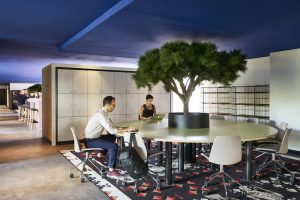
One speaks more and more about coworking and co-living. Is it a bundle you might be exploring?
Yes, we are already looking into it.
How ambitious are Mama Works plans? Do you plan to stay in France only or are you considering an international expansion?
Pretty ambitious. We are going to use Mama Works Lyon as a laboratory. We already signed a site in Bordeaux opening in a few months and Lille in 2018. We have plans to expand internationally and have already signed a location in Europe…
Is the franchise model we see in the hotel industry appropriate for the coworking world, would you say?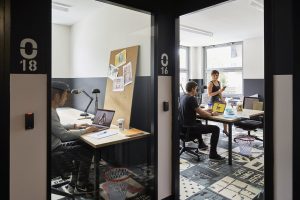
Mama Shelter does no franchise. But we believe Mama Works is the ideal business model for franchise. Unlike the hotel industry, the coworking world relies on very few employees. It is easier to set up a franchise with 4 staff members and as long as we can keep a say on recruitment (not operations) we believe our concept can grow as a franchise model!
It is easier to set up a franchise with 4 staff members and as long as we can keep a say on recruitment (not operations) we believe our concept can grow as a franchise model!
How would you say you position Mama Works (in terms of target, tenants’ profile,…) as opposed to other independent of international coworking players?
We are trying to position Mama Works as an urban kibbutz for coworkers. We want our community to feed on each other and grow organically. Mama Works is chic, high tech, affordable but most importantly human, friendly and lively.
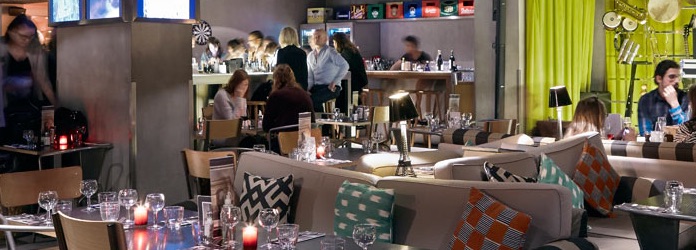
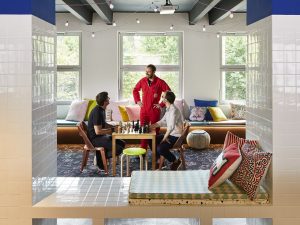

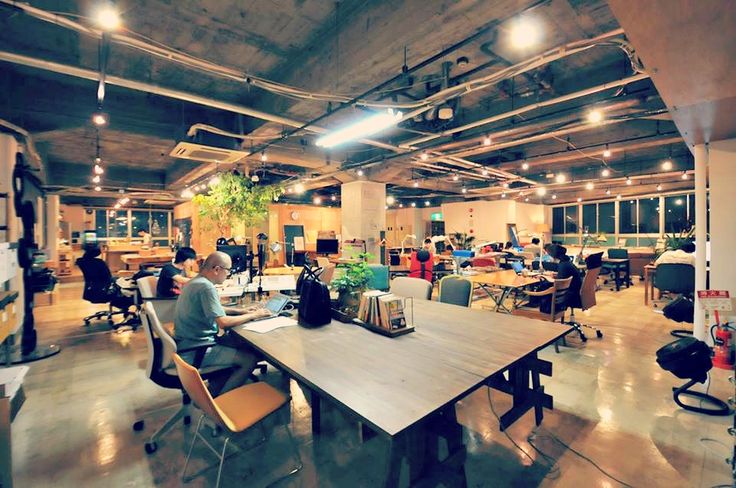
 As of today, we provide professional services both for service provider side and enterprise side on work style change management.
As of today, we provide professional services both for service provider side and enterprise side on work style change management.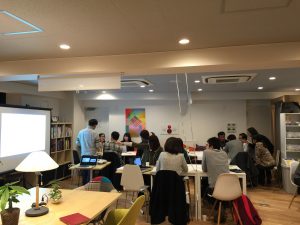 Just recently, WeWork
Just recently, WeWork 
Recent Comments